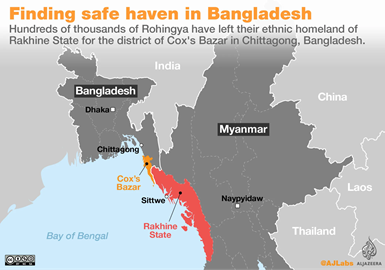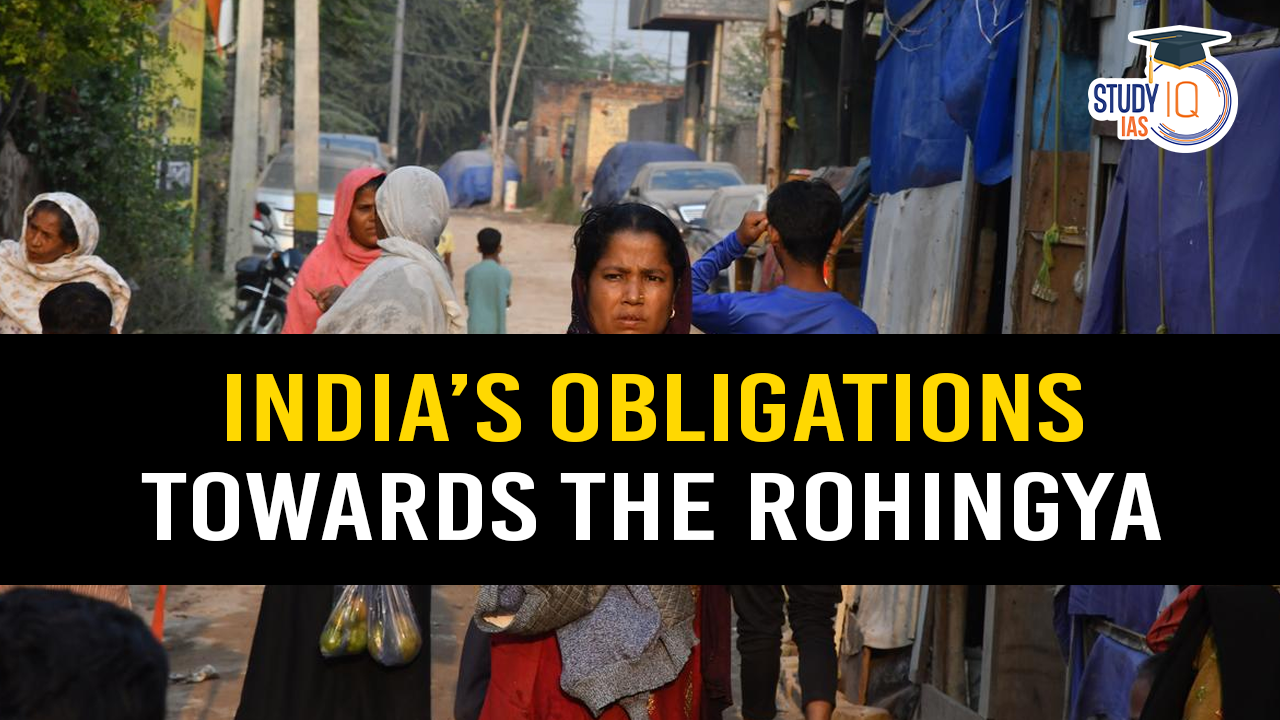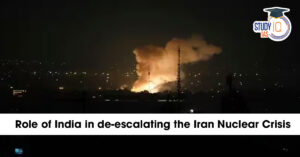Table of Contents
Who are Rohingya Refugees?
- The Rohingya are a mostly Muslim ethnic group who have lived in Buddhist-majority Myanmar for centuries.
- Flee Myanmar due to genocidal violence.
- However, Myanmar does not recognise them as an official ethnic group, making them the largest identified stateless community in the world.
- Rohingya population: ~2.8 million globally.
- ~22,500 in India (UNHCR estimate).

Refugee Rights Under International Law
- 1951 Refugee Convention and 1967 Protocol: The principle of non-refoulement prohibits returning individuals to places where they face persecution or severe human rights violations.
- Recognized as customary international law, binding even on non-signatory states.
- Non-refoulement is absolute, as affirmed by the Office of the United Nations High Commissioner for Human Rights and the UNHCR.
- Other Key Treaties:
- International Covenant on Civil and Political Rights (ICCPR): Article 7 implicitly upholds non-refoulement.
- Convention on the Rights of the Child (CRC) and International Convention on the Elimination of All Forms of Racial Discrimination (ICERD): Ratified by India, these reinforce non-refoulement obligations.
India’s Position on Rohingya Refugees
Domestic Legal Framework
- India is not a signatory to the Refugee Convention, its Protocol, or key treaties like the Convention Against Torture.
- Domestic laws such as the Foreigners Act, 1946, and the Passport Act, 1967, label Rohingya refugees as “illegal migrants.”
- The government asserts no legal obligation to provide asylum, citing national security concerns.
Supreme Court Decisions
- 2021: In Mohammad Salimullah & Anr. vs. Union of India, the Court allowed deportation of 170 Rohingya refugees citing national security.
- 2024: Delhi High Court dismissed a plea to admit Rohingya children into local schools, noting the issue required government policy decisions.
India’s International Obligations
- Relevant Treaties:
- India is party to the ICCPR, CRC, and ICERD, which enforce non-refoulement.
- Signed but not ratified the Convention Against Torture, making its provisions non-binding but indicative of India’s commitment.
- Judicial Interpretations:
- Supreme Court rulings (Vishaka vs. State of Rajasthan, 1997; NALSA vs. Union of India, 2014) affirm the application of international conventions in the absence of domestic legislation.
- High Courts (e.g., Ktaer Abbas Habib Al Qutaifi vs. Union of India, Gujarat HC, 1998; Dongh Lian Kham vs. Union of India, Delhi HC, 2015) interpreted non-refoulement as part of Article 21 (Right to Life).
Concerns and Challenges
- Unequal Treatment of Refugees: Refugee policy lacks standardisation, driven by geopolitical interests.
- While Tibetan, Sri Lankan, and Afghan refugees receive legal aid and long-term visas, most Rohingya face detention and criminal imprisonment despite UNHCR registration.
- Exclusionary Policies
- Citizenship Amendment Act, 2019: Excludes persecuted Muslim minorities like the Rohingya from its provisions.
- Lack of Legal Representation: Civil society groups face funding issues due to revoked FCRA licences, limiting their ability to support detained refugees.
- Lawyers are hesitant to take up Rohingya cases fearing government backlash.
- Dehumanising Living Conditions: Recently, the Supreme Court directed Assam State Legal Services to inspect living conditions at detention facilities because detention centres, such as Matia Transit Camp, are overcrowded and unhygienic.
- Pregnant women and children of Rohingya refugees are among those detained in substandard conditions.


 German Chancellor Visit to India in 2026...
German Chancellor Visit to India in 2026...
 Iran Nuclear Crisis and India’s Role f...
Iran Nuclear Crisis and India’s Role f...
 H1B Visa Program, Beneficiaries, Eligibi...
H1B Visa Program, Beneficiaries, Eligibi...




















